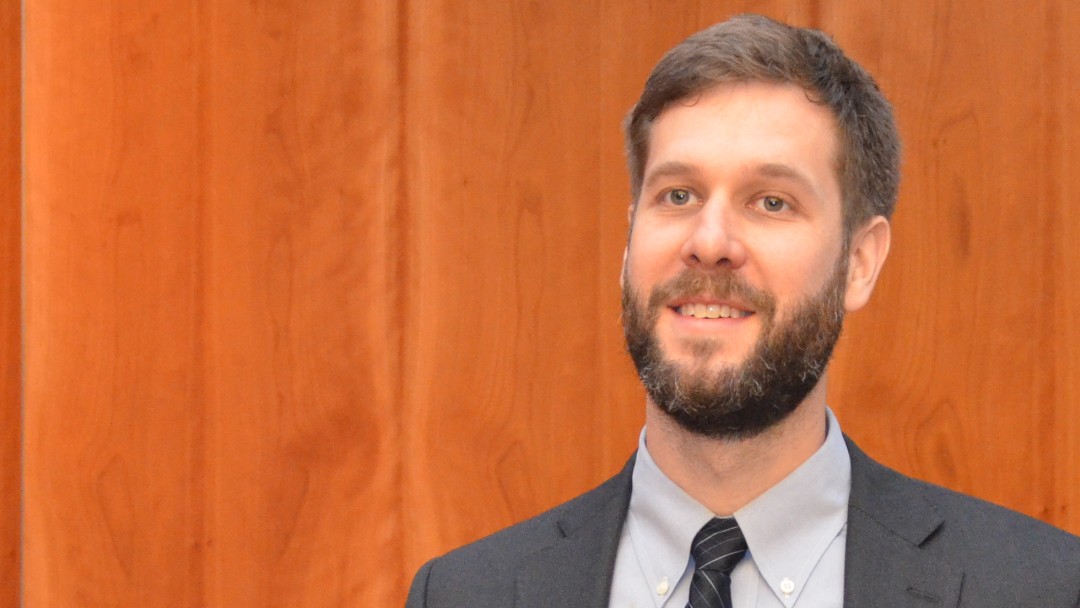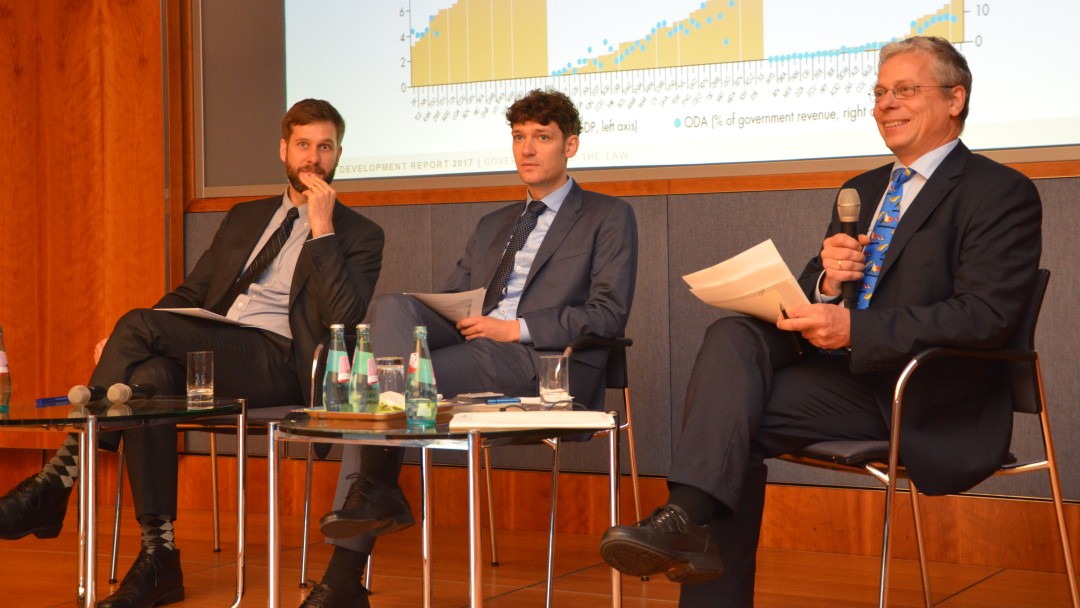News from 2017-05-18 / KfW Development Bank
"Good governance: change is possible"
David Bulman presented the World Development Report 2017 at KfW
The latest World Bank Development Report, presented by author David Bulman in mid-May at the KfW Development Forum, focuses on good governance. How can policy become more effective? What instruments does development cooperation have to promote good governance?
The title of the latest World Development Report - "Governance and the Law" - initially sounds like old hat in development policy. Good governance and the rule of law have been known as key influencing factors for development for decades. However, this report is not primarily about the specific form good governance takes. Rather, it raises the much more important question: how policy measures that are identified as being appropriate can be handled, modified and then implemented in practical policy in the partner country's governance system. The World Bank bases its assessment on a very broad understanding of governance, which includes government and non-government players such as civil society, the private sector or religious associations and institutions, as well as formal laws and unwritten informal rules. Even corruption is an "inherent element of government leadership" in this context.
The World Bank addressed the question of why certain policy measures, such as anti-corruption, are not or are only half-heartedly implemented by governments even though experts consider them necessary, productive and efficient. On the other hand, why are certain costly policy measures not terminated even when they are proved to be ineffective and sometimes even inhibiting to development, like petrol price subsidies?
Unequal distribution of power
The World Bank consulted game theory to explain the behaviour of leading elites. According to the World Bank's estimation, the core problem is often rooted in asymmetrical power distribution between individuals and groups that makes it possible for individuals to shape policy measures to suit their personal interests.
However, Mr Bulman emphasised that "change is possible". The starting points are incentive mechanisms for the individual players, public pressure, also from international partners, and the creation of opportunities to openly address shortcomings in a peaceful manner, such as in the press, through political participation or citizens' initiatives.
Even elites that are profiting from the current situation would support change in response to social pressure or to protect themselves from losing power in the future. Mr Bulman affirmed that international players can definitely influence the thinking and decisions in partner countries by establishing norms or relaying values in political dialogue. As a specific example, he mentioned the International Commission against Impunity in Guatemala, which gave people the confidence that even high-level offenders would be held accountable. This contributed to the political stability of the country.

New dimensions in development policy
In his co-presentation, Niels Kemper, a sector economist at KfW responsible for the issue of governance, highlighted the fact that the World Bank's current report opened the door wide to a new dimension of development policy: the added value of the report is not the message that good governance is important "per se", but rather the insight that it can and must be regarded in a much broader sense than it previously was.
However, Mr Kemper lamented the fact that the World Bank did not come to any clear recommendations for action in the report and that there are still no established standard analysis tools for these governance processes in the wider context that the World Bank postulated. Development politicians, development practitioners and development researchers have to work in close cooperation to develop these.
In the discussion that followed, the question of whether the World Bank had become more political was raised. Does it now advise closer cooperation with civil society organisations? Mr Bulman confirmed this, but also said that the results of the World Bank's scientific surveys would have to be more strongly incorporated in their operational units. The World Bank also encourages us to think more about the political implications of development cooperation. The mutual dependency of donor and recipient countries was also mentioned. In many cases, development cooperation can more strongly urge towards reforms, especially if the majority of government spending is financed by the donors.
KfW Team Head and moderator Joachim Heidebrecht summarised that, in the past, international development players were very deeply involved in the development and promotion of technical solutions within the existing governance framework. The World Development Report 2017 is an appeal to deal more with the issue of who is making the critical decisions and how these players can be convinced to make the appropriate decisions. There are often insufficient instruments and experience here to properly understand the processes, then take them into account appropriately during project conception, and also to influence them through one's own measures. A broad field for further development of international development cooperation is opening up here.


Share page
To share the content of this page with your network, click on one of the icons below.
Note on data protection: When you share content, your personal data is transferred to the selected network.
Data protection
Alternatively, you can also copy the short link: https://www.kfw-entwicklungsbank.de/s/enzBWrMC.BlSA
Copy link Link copied